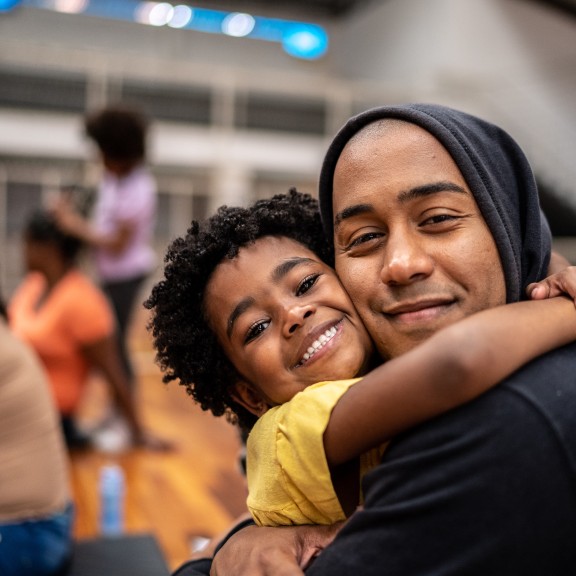Preventing and mitigating youth trauma, family separations: California's SB 578
Bill would require social workers and judges to weigh the known harms of separating children from their parent(s)
Every child and young person needs and deserves to be unconditionally healthy, safe, and thriving in all the complexity of their humanity. As they grow and build toward the future they envision for themselves, children and youth must be free from state surveillance, policing, and coercive control. They must be able to seek the support they believe they, their families, and/or their communities need without fear of punishment or further harm.
A court’s legal decision to separate a child from their parent(s) should never be taken lightly. California's Senate Bill 578 attempts to better protect children, youth and their families and communities from harmful state intervention by requiring social workers and judges to consider the risk of severe harms of separating children and parents when recommending or making decisions about prolonging or ending such separation. Learn more from Tanya Gassenheimer, Senior Policy Manager on our Child Welfare team, about this much-needed policy shift and how it can help keep California families together and thriving:
What would SB 578 do?
It would require social workers, when making recommendations to the court, to weigh and document the short- and long-term harms a child is likely to suffer if the state separates the child from their families, as well as ways to mitigate these harms if they are recommending family separation. SB 578 would compel juvenile court judges to consider these negative outcomes if deciding to keep a family separated. Judges would then be required to document the basis for their decisions, including the social worker’s report if relied upon, if deciding on continued family separation.
Why is this law needed?
Separating children from their families causes devastating and often irreparable harms. Pediatricians, social science, and legal experts have found that stressful experiences like family separation disrupt a child's brain architecture, have severe impacts on a child’s short- and long-term health, and can lead to feelings of confusion and isolation that result in post-traumatic stress, substance use, and anxiety disorders, among many other negative outcomes. Separating a child from their family, even for a few hours, can trigger anxiety, aggression, and increased levels of cortisol, humans’ primary stress hormone. Separation from their family also ruptures a child’s connections to their culture, communities, and social environment. Parents experience unique harms while also experiencing harms that parallel their children's experiences when separated. Siblings and other family members also suffer from these devastating consequences. As a unique age group, youth can experience these harms from all of these familial and community roles. California’s Black, Indigenous, and LGBTQIA+ youth are disproportionately represented in the foster system and are therefore disproportionately impacted by the system’s separation of families.
Separating children from their families is a grave decision that must be made with the utmost deliberation. California currently has no policy requiring courts to consider the harms of separating a family when deciding whether to impose this severe outcome. Eight states and Washington D.C. already encourage or require courts to weigh harms when deciding whether to separate a family. California must join this movement by passing SB 578 so that youth and their families and communities are better protected from traumatic state interventions.
What will this additional trauma-informed analysis look like?
SB 578 would require judges and social workers to weigh factors that include, but are not limited to:
- The child's thoughts about their existing relationship with their parent or guardian and how they'd feel about being separated from them;
- The child's existing relationships with other members of the household, such as siblings;
- The disruption to the child's schooling, social relationships, and physical or emotional health that may result from being separated from their family; and
- Any measures that can be taken to lessen disruptions caused by state-mandated family separation.
Weighing these known harms before inflicting the severe and traumatizing intervention of separating a child from their parent(s) will help ensure that judges give these decisions the gravitas they are due. Judges will also be able to hold social workers accountable and better prevent and reduce traumatic experiences for youth through their newly-mandated, trauma-informed reports that must include ways to ensure health and safety, and mitigate the harms if recommending family separation.
How can I support this effort?
This bill is currently moving through the legislative process and is set to be heard next in California’s Assembly Human Services Committee on July 11, 2023. If you live in California, you can let your Assemblyperson know that you support SB 578. You can find out who your Assemblyperson is here.



